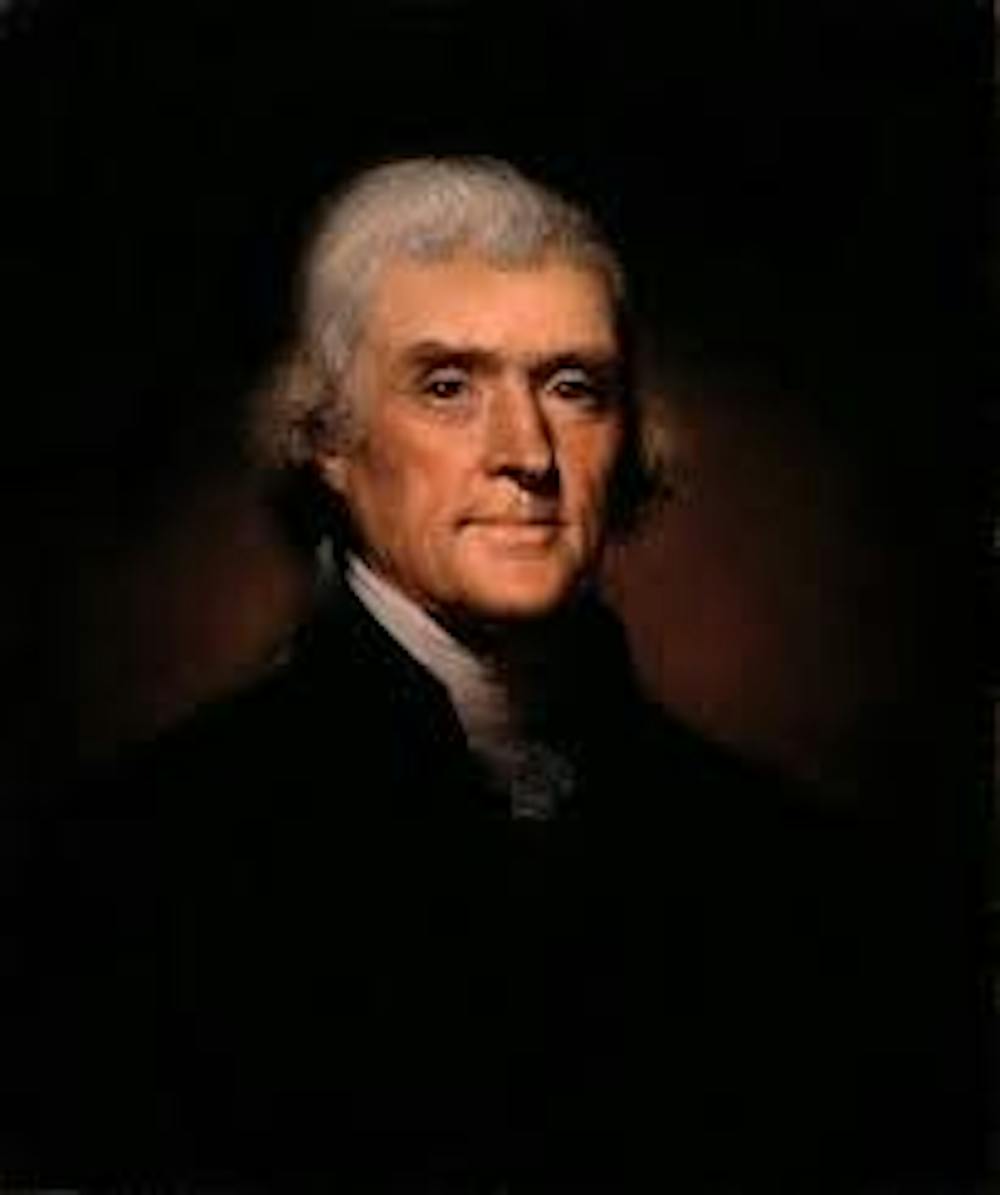In a city that was plagued with race-driven violence just two years ago, the Charlottesville City Council voted to cease celebration of Founder’s Day, celebrated on April 13. It will be replaced with Liberation and Freedom Day to honor the day Union forces arrived in Charlottesville in 1865. Despite Jefferson’s morally unforgiveable slave-holding past, the countless contributions he made to the University, country and world warrant his continued existence in our shared history. Rewriting our holidays and history only serves to push what we dislike out of mind. Instead, our focus should be on acknowledging the good and bad of our history and learning from it.
To say Jefferson was a man without flaw would be incredibly misguided. He owned over 600 slaves, stripping them of their humanity and right to personal dignity. His slave owning isn’t the worst of it. Historians suspect he raped multiple slaves, most notable Sally Hemings, a slave woman with whom he had developed a long-term relationship. Even more troubling is the fact that he tried to rationalize his slave owning and behavior, viewing it as an unfortunate necessity.
Yet this seems to be the only side of Jefferson that City Council leaders want to see. Of course, the sentiment of seeking to revisit history and improve our record is admirable, but this historical negationism only harms society. We have no right to teach history in schools if our governments only seek to erase it. Nothing is black and white, and neither is history.
The City Council seeks to erase the contributions he has made to society. As a diplomat, politician, lawyer, philosopher, linguist, botanist, architect and inventor, he saw nothing but success. In school, he taught himself French, Greek, Latin and multiple other languages. Jefferson designed Monticello and central Grounds. The swivel chair, multiple writing tools and farming tools were his inventions.
More importantly, the founding documents of this country and their ideals came from Jefferson. In the Declaration of Independence, he outlined the ideals for which government should exist, a monumental step for liberty and democracy. He stated that every citizen has the right to “life, liberty and the pursuit of happiness” and wrote that “all men are created equal.” Although the values expressed in the Declaration of Independence only applied to white land-owning males at the time it was written, the philosophical and moral implications of the words he wrote would be the source of inspiration for the fight for racial equality and civil rights centuries later. Martin Luther King famously referenced these words in multiple public addresses. Even today, marginalized communities use his words to fight for equality.
While a slave-owner himself, Jefferson set in motion some of the most crucial efforts of the movement to end slavery and the slave trade. As an attorney, he represented both black and white defendants. George Manly, the son of a freed slave in Virginia, received his freedom as a result of Thomas Jefferson’s representation in the courts. In 1778, he successfully banned the slave trade in Virginia, making it one of the first jurisdictions in the world to do so. At the Constitutional Convention, he proposed the gradual emancipation and training of slaves. He proposed the provision in the Northwest Ordinance of 1787 that would ban slavery in the Northwest territories. He wrote to an acquaintance, saying “Slavery is an abomination and must be loudly proclaimed as such but I own that neither nor any other man has any immediate solution to the problem.”
Jefferson tried to intervene on a global level as well, working to end the international slave trade and helping slaves throughout the world. In 1806, he called for the international slave trade to be criminalized, abolishing it in the United States by 1807. He commissioned naval ships to stop importers and those breaking the law as their primary mission.
While Jefferson’s involvement in slavery can’t and shouldn’t be forgiven, it is clear that he made some of the crucial steps towards freeing slaves in the United States. George Washington, James Madison, Thomas Jefferson, Benjamin Franklin and countless other Founding Fathers owned slaves. But, as historian Annette Gordon-Reed puts it, “Others of the founders held slaves, but no other founder drafted the charter for American freedom.”
His morally reprehensible involvement in slavery should not be taken lightly. It shouldn’t serve to erase all of the good he did either. He should demonstrate that no historical figure, no matter how great, is perfect. If we choose to forget our history, we will lose a better future and we will forget where our values come from. It’s the legacy of slavery and segregation that should remind us of the importance of freedom and equality. Jefferson should remind us that. We should take Founder’s Day as a day to remember both his good and bad attributes, instead of simply reducing him to his failings.
Jeremy Siegel is a Viewpoint Writer for The Cavalier Daily. He can be reached at opinion@cavalierdaily.com.







